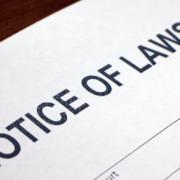What You Need To Know About Lengthy Court Battles in Divorce
If you and your soon-to-be-ex-spouse cannot reach agreements about issues like asset division, child custody, or spousal support on your own, you may need to go to trial. A judge will decide these issues for you based on Pennsylvania’s laws, attempting to reach a fair decision. We understand if you fear the lengthy court battles and stressful debates that can be part of this process.
Here is what you need to know about going to court in a divorce.
How Long Is the Divorce Court Process?
If you and your spouse must use litigation to decide on divorce issues, you can generally expect the process to take about a year. It may be faster or slower, depending on court delays and how long you spend negotiating.
The process generally follows these steps:
- Evidence discovery, where you and your spouse both disclose finances and other relevant information
- Trial preparation and pre-trial conferences
- Motion hearings if either party seeks a specific court order or action
- Trial, where both parties present evidence and witnesses to support their requests for custody or other issues
- Final judgment and divorce decree from the judge
Downsides of Going to Court
For some divorcing couples, going to trial is inevitable. They have tried to settle relevant matters on their own but cannot reach an agreement. Still, it’s worth exploring the potential downsides of going to trial as you and your soon-to-be-ex-spouse attempt to reach a resolution.
Legal fees, court costs, and other expenses often make going to trial expensive. This process also takes more time than reaching a divorce agreement on your own.
During negotiations with your spouse, they can claim rights to any new money you earn. These claims can cost you more time and money, even if they are unfounded. Your finances may not truly be separate from theirs until the divorce is finalized.
Above all, going to trial means you permit a judge to make all decisions about the divorce for you, and you and your spouse must abide by them. While you can attempt to prove your side with evidence and an attorney’s assistance, you won’t have any say in the judge’s final decision, and it may not adequately reflect your wishes or situation.
Mediation May Help You Avoid Court
Divorce attorneys typically advise couples to try mediation before enduring lengthy court battles. This process involves meeting with a trained mediator who can help you resolve your dispute. You and your spouse will each have an opportunity to present your case and negotiate a mutually beneficial solution.
Finding out the downsides of going to court may prompt you and your spouse to be willing to compromise on issues to avoid this process. Mediation is worth a try, as it could save you a significant amount of time and money.
Let Karen Ann Ulmer, P.C., Guide Your Divorce Process
Whether you want to try mediation or need an experienced attorney to help you through a lengthy court battle, Karen Ann Ulmer, P.C., is here for you. Call (866) 349-4149 to schedule a general consultation.
SEO Title: Lengthy Court Battles – Causes, Impacts, and Resolutions
Meta Description: Going to trial in a divorce sometimes involves lengthy court battles. Learn what to expect and how to avoid going to trial from Karen Ann Ulmer, P.C.







